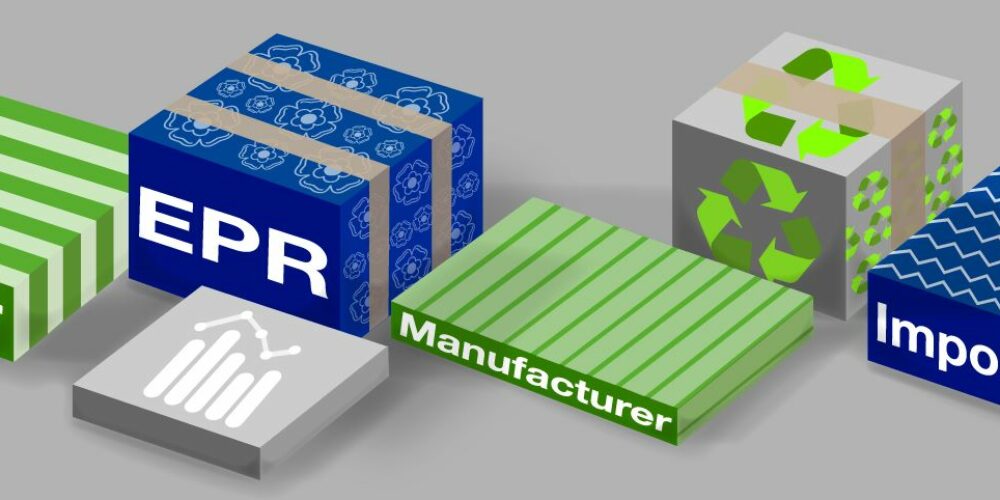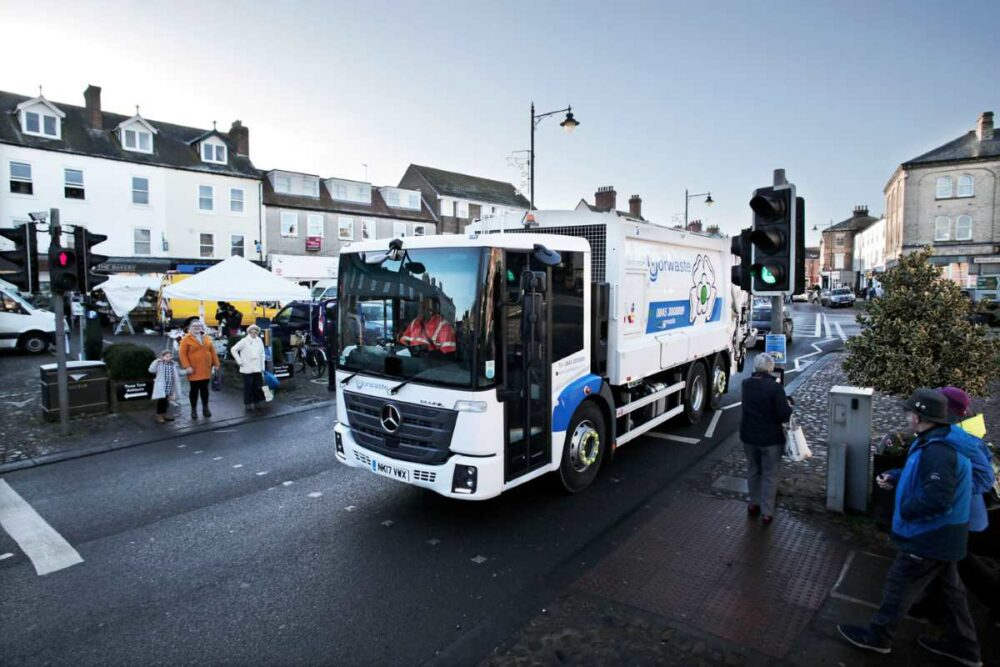Are you EPR ready?

Several news articles have recently been published suggesting that many companies are unprepared for the Extended Producer Responsibility (EPR) which is set to significantly impact producers or importers of packaged goods from October 2023.
Our simple guide explains how companies can get their house in order ahead of the October deadline, and answers, in simple terms, some of the most commonly Googled questions about EPR.
What is EPR?
Any UK company that turns over at least £1m and supplies or imports packaging, be it manufacturers, importers or retailers, must comply with the new regulations as set out by DEFRA and the Environment Agency. This means that the businesses which put the packaging into the hands of consumers – and not British taxpayers – are now responsible for the £1.7bn financial burden of collecting, sorting, recycling and disposing of this waste.
This applies to aluminium, steel, glass, wood, plastic, paper, cardboard, fibre-based composites and biodegradable materials, and comprises anything from large bulky packaging, such as that used for white goods, to everyday grocery packaging.
Does EPR apply to my organisation?
EPR currently applies to any company that has an annual turnover of at least £1m and was responsible for more than 25 tonnes of packaging in 2022.
This includes individual businesses, subsidiaries or groups (but not charities) that:
- Supply packaged goods in the UK under their own brand
- Package and/or supply unbranded goods in the UK
- Import packaged products
- Online marketplaces
- Supply packaging that’s empty
The Government has tried to make the EPR guidelines as simple as possible to follow. However, as with all new legislation, there may be some grey areas and we would always recommend that professional advice is sought to avoid costly mistakes.
For example, companies that manufacture and package products under their own brand to be sold to customers via high street retailers are expected to take responsibility for the recycling of their own packaging waste. However, if a company produces and packs products under a retailer’s brand, the retailer may be the responsible party.
What action must companies take to comply with EPR regulations?
- Collect and report data on supplied or imported packaging at set deadlines
- Pay waste management fees
- Cover scheme administrator costs
- Pay a fee to the environmental regulator
- Obtain PRNs and PERNs (recycling and export recycling notes)
- Report on which nation their packaging is supplied and discarded in
Do smaller organisations have the same obligations as big conglomerates?
Bigger and smaller organisations will have different obligations, and it’s important to work closely with waste industry experts and providers to establish the right solution.
Companies with a turnover of between £1m and £2m, handling up-to 50 tonnes of packaging per year, must report on the production of its packaging and the management of its waste annually.
Companies with a turnover exceeding £2m and more than 50 tonnes of packaging per annum will have to report their data every six months and cover additional costs of EPR (as detailed in the above section).
How can my organisation be EPR ready?
1. Be mindful of time
All obligated producers should have gathered data from 1st January 2023. If this has not happened yet, it would be wise to compile your figures for the last few months as soon as possible.
For large (£2m+ turnover) organisations, the first data report is due by the 1st of October, and the 2nd due by 1st of April 2024.
Smaller (£1m to £2m turnover) organisations must submit their data by 1st of April 2024.
2. Use the official tools
Defra is set to launch a calculator to enable organisations to estimate their individual EPR costs.
The government website also produces a useful guide on how to collect your packaging data and, crucially, how this could change as your business grows.
3. Work with experts
Reputable Waste Management firms, such as Yorwaste, can provide all the expertise a business needs to comply with the EPR regulations with minimum disruption.
Ultimately, EPR will benefit the circular economy by incentivising businesses to recycle more and encourage greater adoption of easier to recycle materials.
Speak to us
Our helpful and expert team is always on hand to discuss your waste management needs, from both a practical and legislative point of view. Contact us: customerservices@yorwaste.co.uk.

